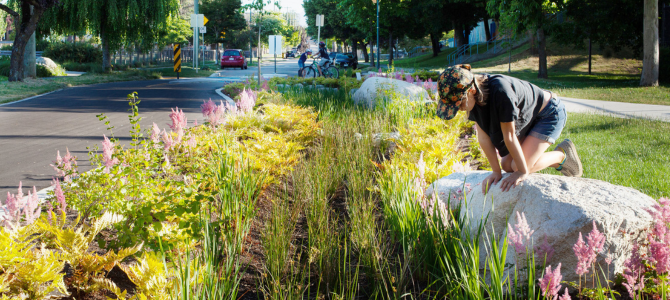

What is climate adaptation?
Climate adaptation means taking proactive action to prepare for and respond to the impacts of climate change by both reducing risk to these changes while strengthening our resilience and ability to recover from them.
In Vancouver, climate change is increasing risks to:
- Health and wellbeing
- Nature and biodiversity
- Infrastructure
- The economy
While we continue to reduce Vancouver’s climate pollution, we also need to prepare for the climate impacts we can’t avoid.
Vancouver’s main climate change-related hazards
Learn more about the 5 main climate change-related hazards facing Vancouver, and what we’re doing to make our city more resilient to their impacts.
Projected changes we can expect by 2050 in Vancouver
Responding to the challenge
Vancouver has been taking action to adapt to climate change for over a decade: our Climate Change Adaptation Strategy (CCAS) was the first of its kind in Canada when approved in 2012.
Now in its third iteration, following an initial update in 2018, the CCAS aims to:
- Reduce Vancouver’s risk to climate impacts
- Protect people, ecosystems, infrastructure, and services from changes we can’t avoid
We know that the impacts of climate change are not felt equally by all communities or individuals. We’re taking steps to centre equity in our response to this challenge.
We're also working with local and regional partners and all levels of government, and are seeking collaboration with the xʷməθkʷəy̓əm (Musqueam), Sḵwx̱wú7mesh (Squamish), and səlilwətaɬ (Tsleil-Waututh) Nations to advance this work.
